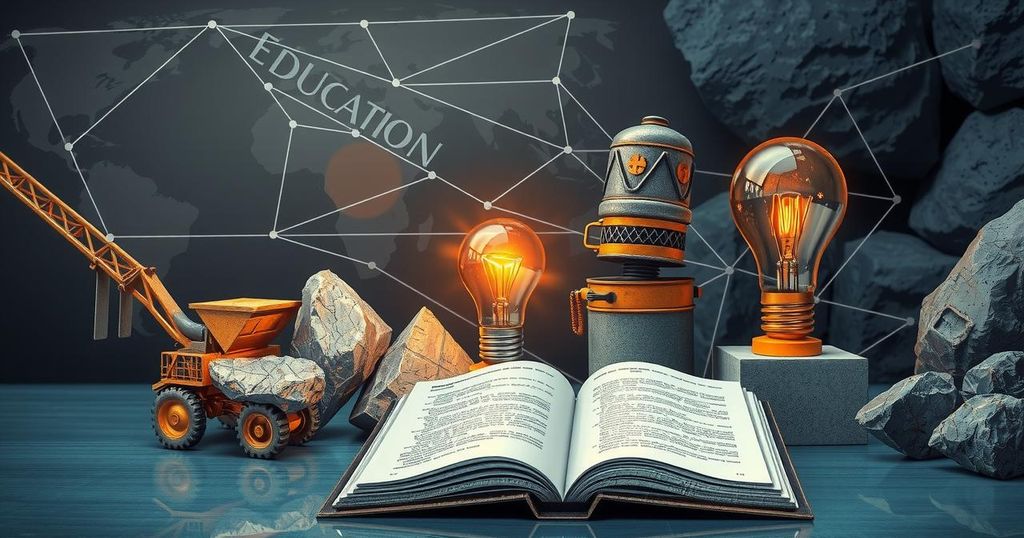On February 26, 2025, Russian President Vladimir Putin and Guinea-Bissau’s Umaro Sissoko Embaló discussed increasing cooperation in rare earth metals and education. Dmitry Peskov confirmed Russian companies’ interest in these partnerships and announced a rise in educational quotas for Guinea-Bissau students, particularly in military training. This initiative could reshape geopolitical dynamics as both nations enhance their bilateral relations through these strategic collaborations.
On February 26, 2025, President Vladimir Putin of Russia and Umaro Sissoko Embaló, the leader of Guinea-Bissau, convened to discuss their countries’ expanding cooperation, notably in the areas of rare earth metals and educational exchanges. Kremlin spokesman Dmitry Peskov emphasized the existing interest of Russian companies in partnerships associated with these resources, stating that progress has already been achieved, and expressing hope for continued project realization.
The meeting also marked an announcement regarding an increase in educational quotas for students from Guinea-Bissau, particularly those pursuing military training in Russia. According to President Putin, Russian educational institutions are highly esteemed by young individuals from Guinea-Bissau, prompting more educational opportunities. He noted that the current academic year sees 75 budgeted places allocated for students, alongside the preparation of over 5,000 professionals in various fields.
Peskov reiterated that the cooperation extends beyond rare earth metals, reflecting Russia’s broader strategy to strengthen ties with African nations. Discussions with Embaló extended to mining, education, and potential future collaborations, with Peskov indicating upcoming talks to explore different dimensions of the partnership. Such sentiments underline both governments’ commitment to fostering these cooperative relations.
The initiative to increase educational quotas aligns with a tradition of training military professionals from Guinea-Bissau in Russia, enhancing military capabilities and friendship between the two nations. This reflects a commitment expressed by both Putin and Peskov towards solidifying ties, particularly in light of growing global interest in rare earth metals, recognized as critical for modern technological advancements.
Putin’s personal engagement during these discussions signifies the Kremlin’s dedication to advancing bilateral relations through educational and resource extraction cooperation. Expectations from these discussions point to new economic collaborations and potential political alignment, signaling opportunities beyond conventional partnerships.
As Russian-Guinea-Bissau relations deepen, these developments may alter the geopolitical landscape in Africa, challenging the traditional dominance of Western nations. The Kremlin’s approach, centered on mutual interests and support, could ultimately lead to a redefinition of partnerships across the continent.
In summary, the anticipated outcomes of these diplomatic engagements are poised to transform alliances and create new economic opportunities for both Russia and Guinea-Bissau. The increase in educational quotas exemplifies Russia’s strategy of fostering mutual growth through knowledge exchange, thereby enhancing military training and paving the way for future collaborative initiatives.
The recent meeting between Russia and Guinea-Bissau underlines a significant enhancement of cooperative ties focused on rare metals and educational exchanges. The increase in educational quotas reflects Russia’s strategic intent to foster mutual growth and cooperation, signaling a proactive partnership that may reshape geopolitical dynamics in Africa. As both nations collaborate on military training and resource management, the benefits of this engagement are likely to extend far beyond mere economic interests.
Original Source: evrimagaci.org






